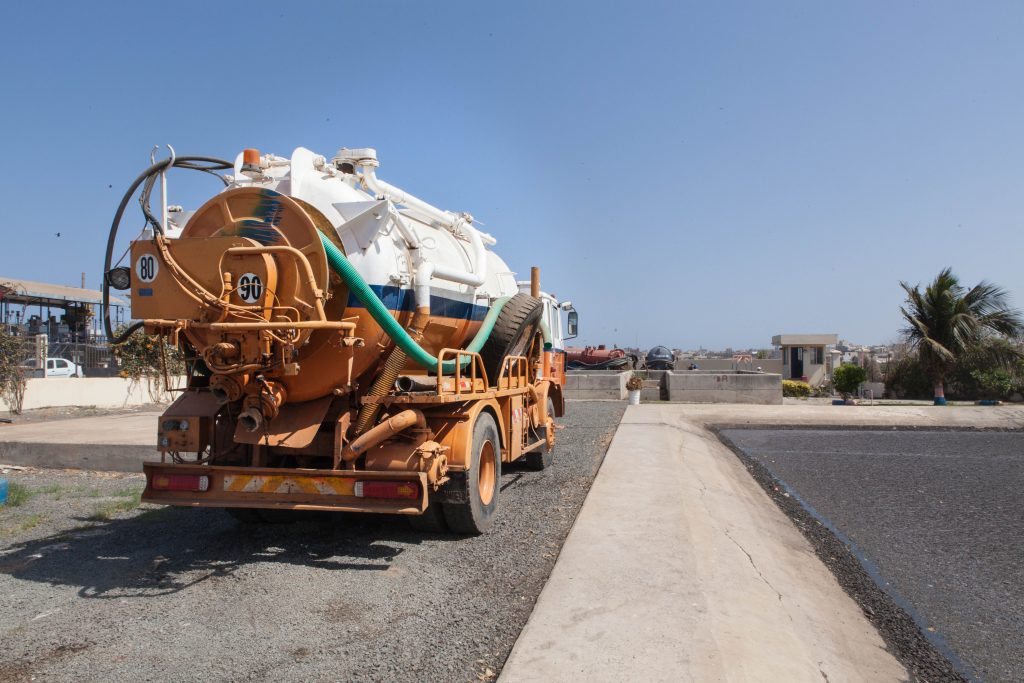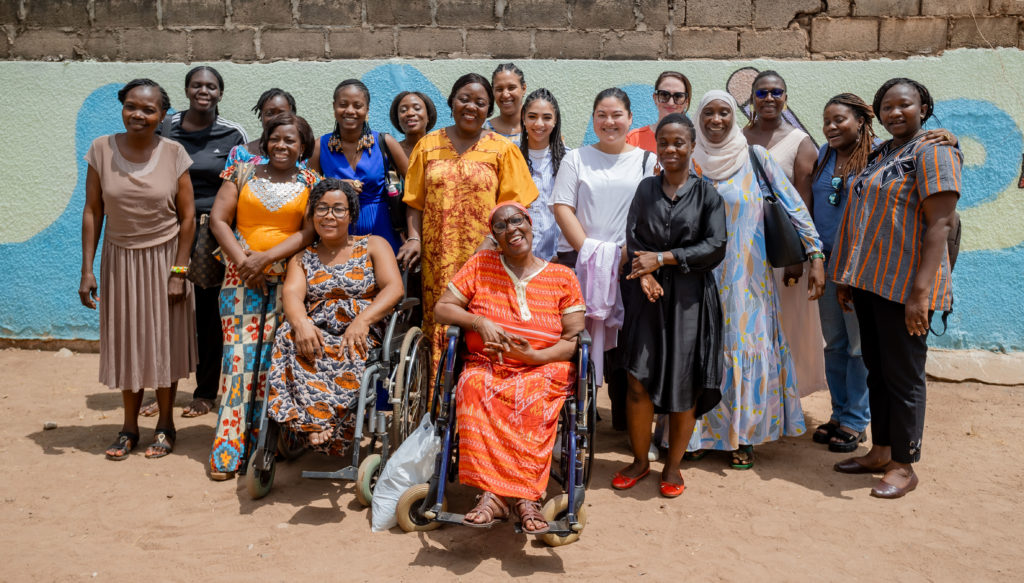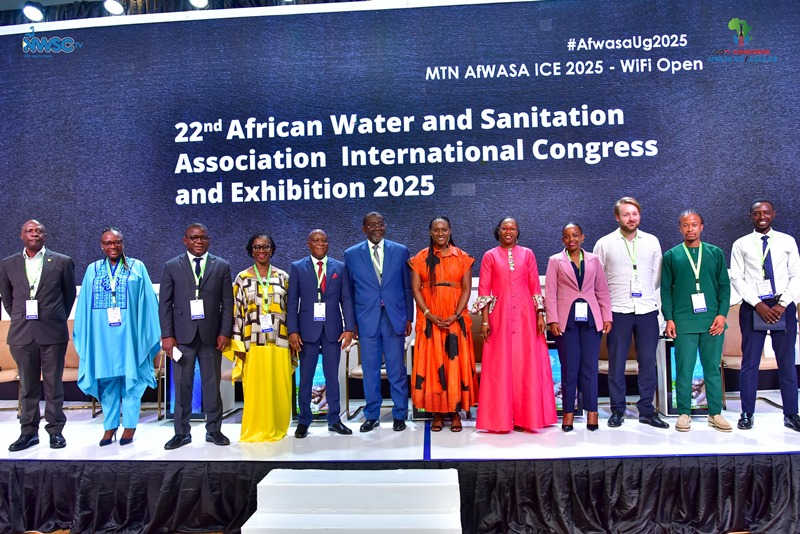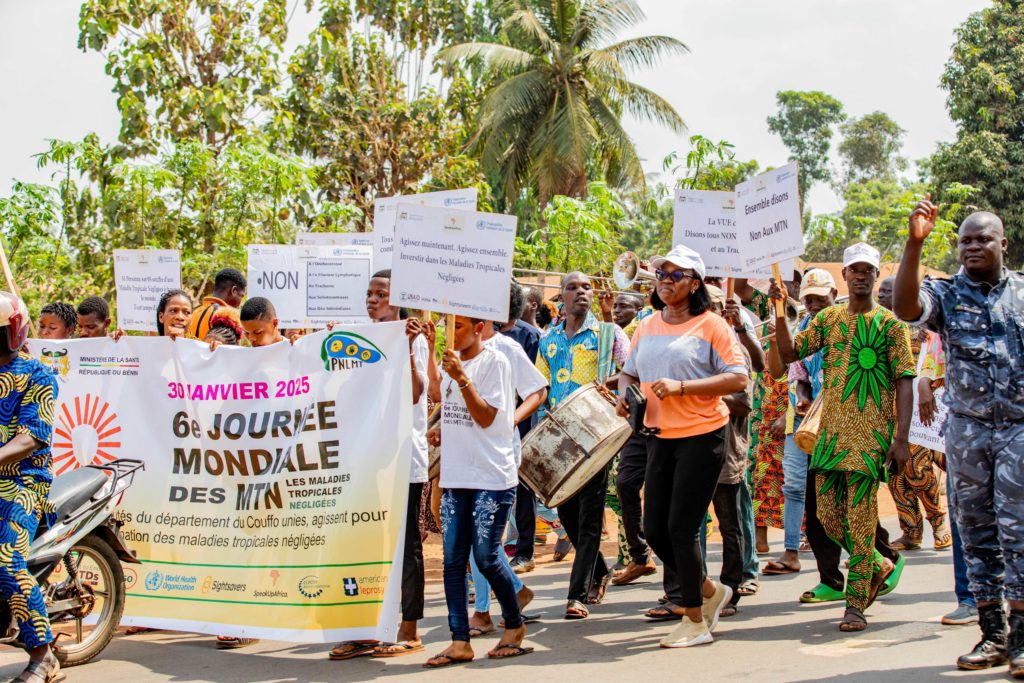Second Deputy Mayor of the City of Yamoussoukro invites States to design a clear institutional framework empowering mayors to be active actors in non-sewered sanitation

African Local Authorities are resolutely committed to fully play their role in providing universal access to sanitation to their populations. It is in the image of Yamoussoukro, an Ivorian city which distinguishes itself with initiatives in that sense. Its Mayor, Mr. Yaoura Konan – interviewed on the sidelines of the International Sanitation Conference, AfricaSan5 and FSM5 held in Cape Town (South Africa) – advocates for the total implication of mayors in the definition and implementation of equitable sanitation strategies. Following that same momentum, Mr. Konan is inviting States to design a clear institutional framework empowering mayors to be active actors in non-sewered sanitation. He also wants the elaboration of financial mechanisms to allow the most disadvantaged to have access to adequate toilets.
Mr. Deputy Mayor, 30 African Local Authorities have reaffirmed their engagement in designing and implementing equitable sanitation strategies in favor of their constituents. How do you assess this action taken within the framework of the AfricaSan5 held in Cape Town?
The action taken is very positive as it gives an opportunity for mayors to exchange on the best practices regarding the sanitation sector. Once these forces are joined, it facilitates taking further steps because the actors will have the same vision and therefore mutually support each other through a South-South collaboration.
Could you provide an outline of what these equitable sanitation strategies will look like?
For a sanitation strategy to be equitable, mayors need to be fully involved first. They are the ones living alongside populations and they experience firsthand what goes on in their lives on a daily basis. Then, every country needs to design a tailored policy adapted to their respective communities. Mayors are best to evaluate and establish the greatest policies for their constituents.
In my opinion, the strategy must be based on the sanitation value chain. We absolutely need to address the following issues: what needs to be done for households to have access to adequate toilets, what needs to be done to ensure collection is properly operated, how to make transport efficient and finally how to adequately treat fecal sludge. Since mayors will be joining a network, they will be able to discuss and identify the best strategies and most adequate methods.
The role of Mayors is recognized to be paramount in the resolution of sanitation issues. How does one succeed where States have almost failed, especially knowing that local communities have limited resources?
Both at the State and local government levels, sufficient resources pose a problem. But to overcome this challenge, there ought to be a strong cooperation with funding agencies, foundations such as the Bill and Melinda Gates, and also to associate NGOs such as Speak Up Africa to alert donors on the situation.
Africa does not have sufficient resources, but in the framework of the SDG 6.2, the international community must support Africa. The opportunities are not lacking and there are funds, budgets available and we need to act as a group and present programs with clearly defined objectives.
We believe that after this meeting with mayors, the Francophone Local Authorities Network who is fully commited to non-sewered sanitation and the Anglophone Mayors one should establish partnerships to share their respective experiences. Converging dimensions between the two networks will strengthen mayors.
In fact, the problem lays at the institutional framework level. Currently, mayors are in charge of sanitation, but the clear and actual definition of their powers or the actions they can take is not concrete. An institutional framework that allows mayors to be active actors in non-sewered sanitation should be defined.
Currently, how is the sanitation issue managed in your city?
Yamoussoukro is extremely lucky. It was chosen as pilot city of the Capacity Building Program of African Non-Sewered Sanitation and Fecal Sludge Management Operators (RASOP-Africa). This program has enabled the City of Yamoussoukro to conduct a stocktaking exercise of the situation and to design a performance improvement plan.
From this, we have designed a non-sewered sanitation policy and strategy. This allowed us to meet Speak Up Africa. Today, we began a phase that consists in providing toilets to households. In this same phase, two types of toilets have also been built for the school system.
We believe that a financial mechanism should be designed to allow the less fortunate to have toilets. An awareness policy should be implemented to sensitize people about the consequences of letting wastewater freely flow, they need to know that it exposes them to all kinds of diseases. We carried out inspections for collection to be done in three phases: on-demand, on-incentive and on-inspection.
We are heavily counting on Speak Up Africa and the Bill and Melinda Gates Foundation for the enactment of this policy. We began the first phase. There remains the second phase because the RASOP Program fostered the environment that induced the National Office for Sanitation and Drainage (ONAD) to plan to build a fecal sludge treatment plant.
In addition, the other components of the sanitation value chain namely transport, and collection should be improved. In this regard, we need to build capacity of the emptiers, particularly in terms of service quality.
Is there a true political will that could allow local communities authorities to fully play their role in the sustainable management of sanitation?
In terms of sanitation, the legislative and regulatory framework needs to be clearly defined. Local authorities have the duty and the need to be involved in the management of sanitation. However, we are limited, we cannot act without clear legislation. The legislation should clearly stipulate that the State is the contracting authority, and that the local authorities are the managing entities.
This model has been applied in the energy sector with the company Ivory Coast Energy which is the contracting authority in the implementation of the projects in that same sector.
The same scheme should be replicated with ONAD (National Office of Sanitation and Drainage) which will be the designated contracting authority and the local authorities will play a management role. This is most relevant as ONAD does not have designated representative bodies in the regions, leaving a void to be filled through delegation of power.
What is the place you give to sensitization and education on hygiene and sanitation to generate a behavior change among populations?
It must be acknowledged that African countries have the know-how but lack the behavioral skills to develop. Which is not specific to sanitation only.
That is why, the sensitization and training part has to be reinforced in our programs. Our communities do not have the competencies for that, and we are counting on NGOs to support us in sensitizing populations.
Why not think about creating sanitation and hygiene training institutions. I know that in the context of the MCC, there is a component for that, but there is a need to create a school dedicated to sanitation related professions. In Ivory Coast, the MCC, the African Water Association (AfWA) and other organizations are working in that direction.
Subsequent to AfricaSan5/FSM5, the sanitation stakeholders have decided to move toward concrete actions in the next 12 months. According to you, what will be the main challenges local authorities will have to overcome in order to best play their part in the process of achieving the SDG 6.2?
It is first about the harmonization of the living environment in accordance to the institutional framework for every State. Hence, mayors ought to be implicated because they are closest to the populations. Organizations also have to agree to support local communities on specific projects.
The populations themselves must be committed and motivated to play their role with the help of training, information and sensitization so that inclusive sanitation becomes a reality for all.


